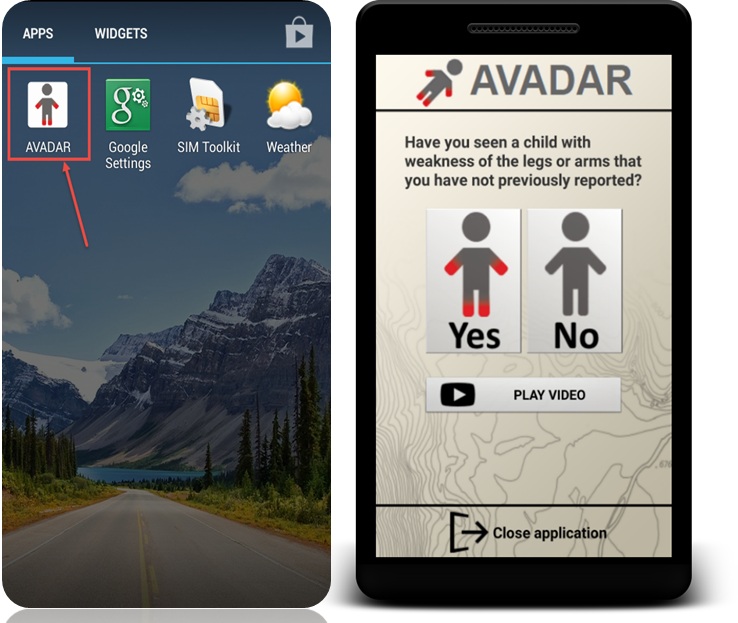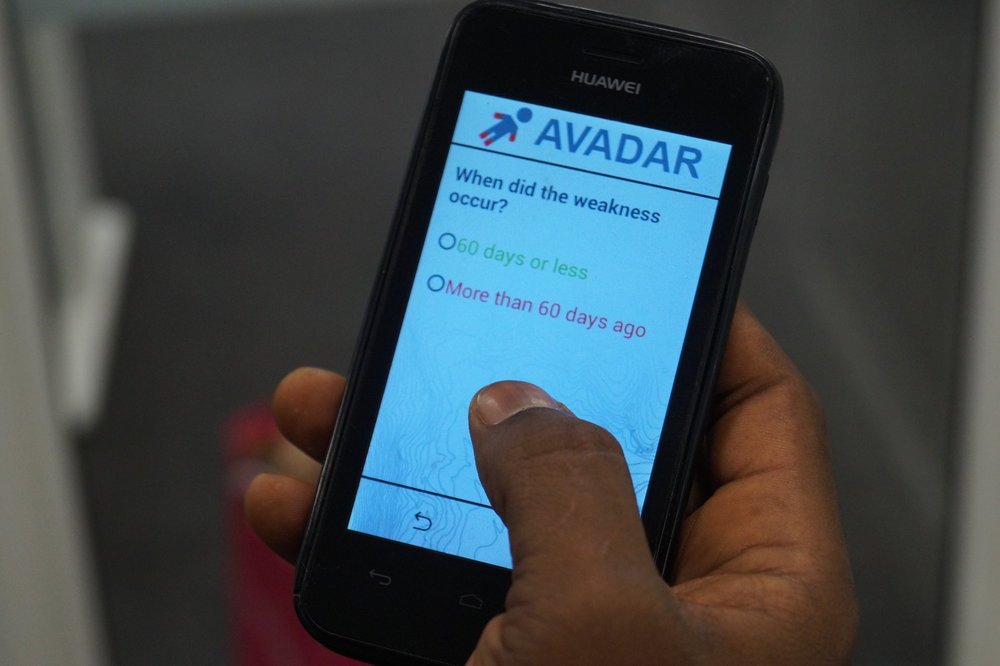In 2016, when four new Acute Flaccid Paralysis (AFP) cases were discovered in Nigeria, AFP surveillance became a concern in neighboring Niger.
Mahaman Laminou Sani is the District Coordinator of Guidan Roumdji district, a position he has held since 2018. His district is located in Maradi region and is considered a high-risk location because it shares borders with Nigeria, a country where new cases of the wild polio virus were discovered. Having served as a Disease Surveillance and Notification Officer prior to his current role, he is aware of the many challenges with AFP surveillance in his region. In previous times, surveilling for AFP cases was a tedious process. Active case searches were only conducted by medical doctors periodically at the health facility level. AFP cases were only detected, reported and reported when patients visited the hospitals.
“Over the last few years, AFP surveillance in Guidan Roumdji has undergone many phases. It used to be a very inefficient, passive process and so, the number of cases being reported was not a true reflection of the number of AFP cases in the area. At some point, we came up with an initiative where informants took advantage of vaccination campaign rounds to visit communities and households to search for AFP cases. Once an AFP case was discovered, the informants would call a doctor (if they had a phone) or wait till they returned to the health facility to report the case. The doctor would then go to investigate the case.”
This method was time-consuming and not very efficient because it was only implemented during Supplementary Immunization Activities and it did not lead to a significant increase in the number of AFP cases discovered. Auto- Visual AFP Detection and Reporting (AVADAR) was introduced to Niger in 2017 and was piloted in three districts. By August 2018, it had been expanded to include three more districts including Maradi. The AVADAR system combined three important factors necessary for improving AFP surveillance: timely and active case finding, community participation and the use of technology. The system enlisted community members to serve as informants who would search for AFP cases within their communities and send weekly reports via SMS. Investigators would be notified of these reports and would investigate whether it was a true AFP case or not within 24 hours. With the advent of AVADAR, doctors no longer needed to wait until patients with AFP came to the health facility. The result is that more cases are being detected.
“The AVADAR project has had a great impact on AFP surveillance in my district. The rate of AFP case detection and the quality of surveillance data using AVADAR’s electronic system has improved greatly. Using our traditional methods of AFP surveillance, we would only record 1–2 AFP cases every month. Now, we record up to 6 cases monthly.”
The AVADAR model is ensuring that communities are fully engaged and participating in the fight against polio and because of this, there is now more awareness than ever about Polio and its chief symptom, AFP. The AVADAR community informants are themselves, members of the community and this has made case finding easier and more effective. The community informants have conducted several sensitization and awareness activities within their communities so the community members themselves call the informants whenever a case is sighted and or noticed. In addition, eHealth Africa provides technical officers who work round the clock to ensure that the electronic gadgets (phones and solar charges) which the informants use for reporting are in perfect working condition. In total, eHA technical officers have received and resolved a total of 1023 complaints from Guidan Roumdji since the launch of AVADAR till date.
“In my district, all the involved actors—the health district officers, the community informants, the investigators and the regional health staff—work as a team to make the project progress. The informants seize all opportunities and platforms to increase the awareness of the community about AFP and Polio using the embedded instructional video. The technical officers are always available and respond promptly to the solicitations of the informants and the investigators in the field. Our partnership with eHealth Africa has been very vital for the success of AVADAR and the progress that is being made towards polio eradication in Guidan Roumdji.”
AVADAR has completely transformed AFP surveillance in Mahaman Sani’s district and this puts the district in a better position to resist outbreaks of polio. Over 1,040 AFP cases have been reported by community informants in Guidan Roumdji and 40 of these cases have been confirmed to be true AFP cases.







